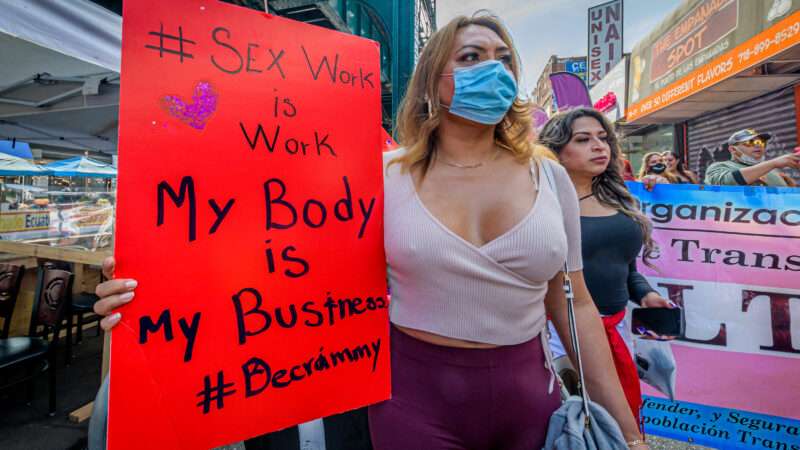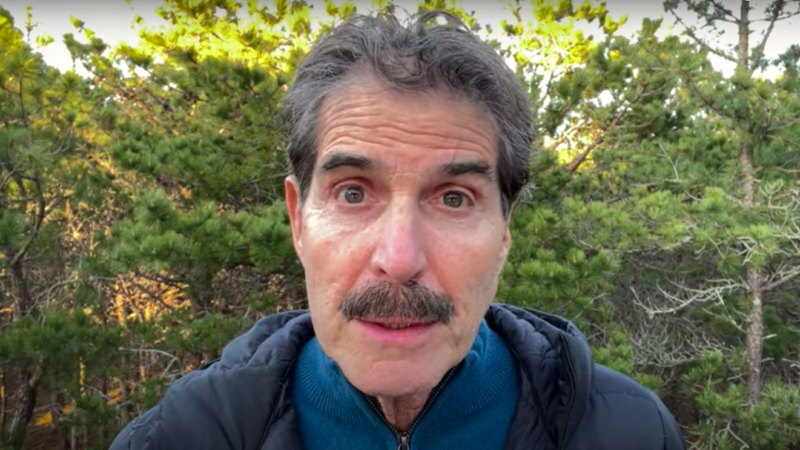
Manhattan will dismiss thousands of prostitution and unlicensed massage cases, District Attorney Cy Vance, Jr. announced on Wednesday. Going forward, Vance’s office will also decline to prosecute people for selling sexual activity—though they can still be arrested, and people paying for such services will still be arrested and prosecuted. Additionally, the office will stop prosecuting people for unlicensed massage.
Overall, it’s a positive step. Vance’s office has moved to dismiss 914 prostitution and unlicensed massage cases and 5,080 loitering for the purpose of prostitution cases (New York legislators repealed the prostitution loitering law statewide in February). It’s also a reassuring sign of changing attitudes toward sex work and the criminal justice system.
Manhattan follows in the footsteps of Baltimore, which stopped prosecuting prostitution cases (for sex workers and their customers) and an array of other non-violent misdemeanors last year. And the move comes at a time when statehouses across the country have been considering prostitution decriminalization initiatives.
For decriminalization to happen in New York, the legislature will have to get involved. That means prostitution—whichever end of the exchange one is on—is still illegal in Manhattan, and a future district attorney could decide to start prosecuting sex workers again. Particular prosecutors pledging leniency is great, but it doesn’t negate the need for legislative change.
That’s especially true since Vance’s office will only offer leniency for sex workers, not their customers. That means Manhattan cops will still be policing private and consensual sexual activity between adults—still doing prostitution stings, still making prostitution arrests, and still prosecuting people on charges of patronizing a person for prostitution.
What Vance’s office is advocating is a form of asymmetrical criminalization, often called the Nordic Model. It’s a system that still creates many of the same harms as total criminalization, since it still forces sex work and sex workers underground.
Under the Nordic Model, sex workers must keep their whereabouts and activities secret or else face cops coming and arresting all their customers. Sex workers themselves may also be arrested in order to get them to comply in cases against their customers, coworkers, or bosses. And sex workers doing things like helping one another post ads, referring customers to each other, or sharing a physical work space can still be prosecuted as pimping, money laundering, or brothel-keeping.
All of this seriously limits the safety utility of not prosecuting people for selling sex, despite the fact that many advocates for asymmetrical criminalization claim it’s about keeping sex workers safe. It also does little to reduce law enforcement contact with sex workers or cut down on the amount of time and resources devoted to policing sex.
In Manhattan, police aren’t being asked to actually refrain from arresting sex workers or unlicensed masseuses. The plan is to still arrest these populations—still putting them into unnecessary contact with cops, still disrupting their work, still putting them on the state’s radar—but to ultimately let them go if unlicensed massage or selling sex is their only offense.
“Any arrest involving these charges should be referred to the Human Trafficking Response Unit,” state’s Manhattan’s new policy. “In cases where they are the sole charge, the Human Trafficking Response Unit will complete all necessary paperwork to formally decline to prosecute these cases and will arrange for information about voluntary services to be provided to the person arrested, but these services will no longer be mandated.”
Vance’s office notes that the new policy “does not preclude us from bringing other charges that may stem from a prostitution-related arrest.”
While a Nordic Model-style system may be better than full criminalization, it’s not what researchers, civil liberties advocates, and public health groups recommend, nor what sex workers say they want or need to keep them safe. What they’re asking for is full decriminalization of prostitution between consenting adults—a system in which neither sex workers nor their customers are arrested or prosecuted.
from Latest – Reason.com https://ift.tt/3eks3Xc
via IFTTT

